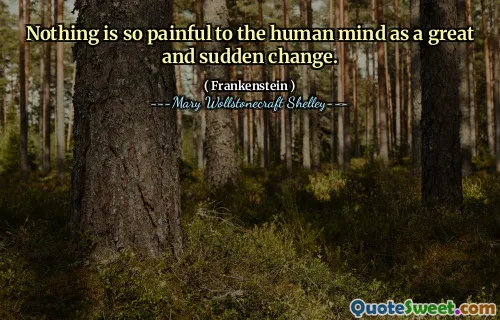Frankenstein, a novel by Mary Shelley, tells the story of Victor Frankenstein, a scientist who creates a living being from assembled body parts. Victor's obsession with uncovering the secrets of life leads him to disregard ethical considerations, resulting in the formation of a creature that he ultimately rejects due to its monstrous appearance. This act of abandonment ignites a tragic chain of events that explores themes of isolation and the consequences of unchecked ambition.
The creature, shunned by society and its creator, experiences profound loneliness and despair. It longs for acceptance and companionship but is met with fear and hatred from those it encounters. As the creature learns about humanity and its own existence, it becomes increasingly vengeful towards Victor, illustrating the destructive impact of neglect and rejection.
Throughout the novel, Shelley delves into complex ethical issues surrounding creation and responsibility. Victor's failure to take responsibility for his creation leads to devastating consequences, highlighting the dangers of scientific exploration without moral consideration. Frankenstein serves as a cautionary tale about the pursuit of knowledge, the nature of humanity, and the repercussions of one's actions, compelling readers to reflect on their own moral responsibilities in the face of innovation.
More »
Today Birthdays
1887 -
Robinson Jeffers
1864 -
George Washington Carver
1936 -
Stephen Ambrose
1953 -
Pat Benatar
1949 -
George Foreman
1945 -
Rod Stewart
1936 -
Robert Woodrow Wilson
1938 -
Donald Knuth
1974 -
Hrithik Roshan
1956 -
Antonio Munoz Molina
1980 -
Sarah Shahi
1936 -
Al Goldstein
1939 -
David Horowitz
1955 -
Michael Schenker
1986 -
Abbey Clancy
1959 -
Chris Van Hollen
1989 -
Emily Meade
